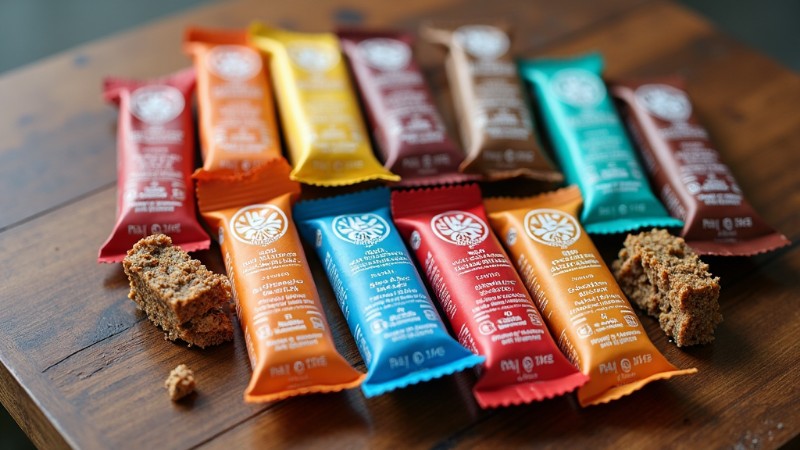Aging is a complex process influenced by genetic, environmental, and lifestyle factors. Central to this process is the health of our cells, particularly the role of cellular senescence, a state where cells cease to divide and contribute to the aging process when they accumulate. This phenomenon can lead to chronic inflammation and age-related diseases, highlighting the importance of cellular vitality in the pursuit of longevity.
Key Takeaways
Aging is influenced by cellular health and nutrition, with plant-based diets playing a crucial role in maintaining longevity.
- Cellular senescence can lead to chronic inflammation and age-related diseases if left unchecked.
- A balanced diet rich in plant-based foods, such as the Mediterranean diet, can significantly impact healthspan and reduce the risk of chronic diseases.
- Incorporating nutrient-dense foods like leafy greens, nuts, seeds, cruciferous vegetables, berries, and fermented foods into your diet can support cellular health and promote longevity.
Understanding Cellular Health and Senescence
Cellular senescence acts as a double-edged sword. While it protects against cancer by stopping the growth of damaged cells, the accumulation of senescent cells can promote chronic inflammation and contribute to aging. These cells secrete various harmful substances known as the senescence-associated secretory phenotype (SASP), which damages surrounding healthy cells and disrupts tissue integrity.
This process is linked to the development of chronic diseases such as cancer, cardiovascular issues, Alzheimer’s disease, and diabetes. Telomeres, the protective caps at the ends of chromosomes, serve as a biological clock, limiting cell division. When they shorten, cells enter senescence or die. Monitoring telomere length is crucial for understanding cellular aging and overall health.
The role of nutrition in aging
Nutrition plays a pivotal role in maintaining cellular health and mitigating the effects of aging. A balanced diet rich in plant-based foods, such as the Mediterranean diet, can significantly impact healthspan—the period of life spent in good health. This diet emphasizes fruits, vegetables, whole grains, legumes, and healthy fats, which help reduce inflammation and combat oxidative stress. Healthy eating is not just about what you consume; it’s about providing your body with the nutrients it needs to thrive.
A Mediterranean ketogenic diet combines these principles with a focus on healthy fats from sources like olive oil and nuts while minimizing processed foods. This dietary approach supports metabolic health, enhances insulin sensitivity, and fosters weight management—key factors in promoting longevity. Additionally, incorporating dietary supplements can help fill nutritional gaps and support overall health as we age.
Nutritional strategies for longevity
A nutrient-dense, plant-based diet plays a vital role in enhancing healthspan—the period of life during which individuals remain healthy and active. A diet rich in superfoods and whole foods can reduce the risk of chronic diseases, improve immune function, and support metabolic balance, thereby promoting healthy aging.
Leafy greens: Vegetables like kale and spinach are packed with antioxidants, which combat oxidative stress, a major contributor to aging. Rich in vitamin K, they support bone health and help prevent fractures, crucial for maintaining mobility in older age. Their high fiber content also promotes gut health, further supporting longevity.
Nuts and seeds: Walnuts, almonds, and chia seeds are excellent sources of omega-3 fatty acids, known for their anti-inflammatory properties. These foods also contain monounsaturated fats linked to lower cholesterol levels and a reduced risk of heart disease. Additionally, the magnesium found in nuts and seeds helps regulate blood pressure and maintain heart health.
Cruciferous vegetables: Broccoli, cauliflower, and Brussels sprouts are rich in sulforaphane, a compound that aids in detoxifying the body and protecting against cellular damage. Their anti-inflammatory properties promote overall well-being, while vitamins C and E support skin health and enhance immune function.
Berries: Blueberries, strawberries, and raspberries are antioxidant powerhouses that contain polyphenols, which can protect against neurodegenerative diseases like Alzheimer’s. They are also rich in vitamin C, vital for collagen production, which helps maintain youthful skin.
Fermented foods: Foods like sauerkraut, kimchi, and miso are high in probiotics that promote a healthy gut microbiome. A balanced gut microbiome is crucial for nutrient absorption, immune function, and inflammation reduction—factors that are key to anti-aging.
A holistic approach to longevity
The pursuit of healthy aging is a multifaceted endeavor that integrates nutrition, exercise, and innovative health strategies. By prioritizing cellular health through a nutrient-dense plant-based diet, engaging in regular physical activity, and exploring emerging scientific advancements, individuals can effectively support their healthspan.
Supplements can also play a supportive role in this journey, offering additional nutrients that may enhance overall wellness. Making informed lifestyle choices will not only support overall well-being but also enhance the quality of life, promoting a vibrant, longer existence.














